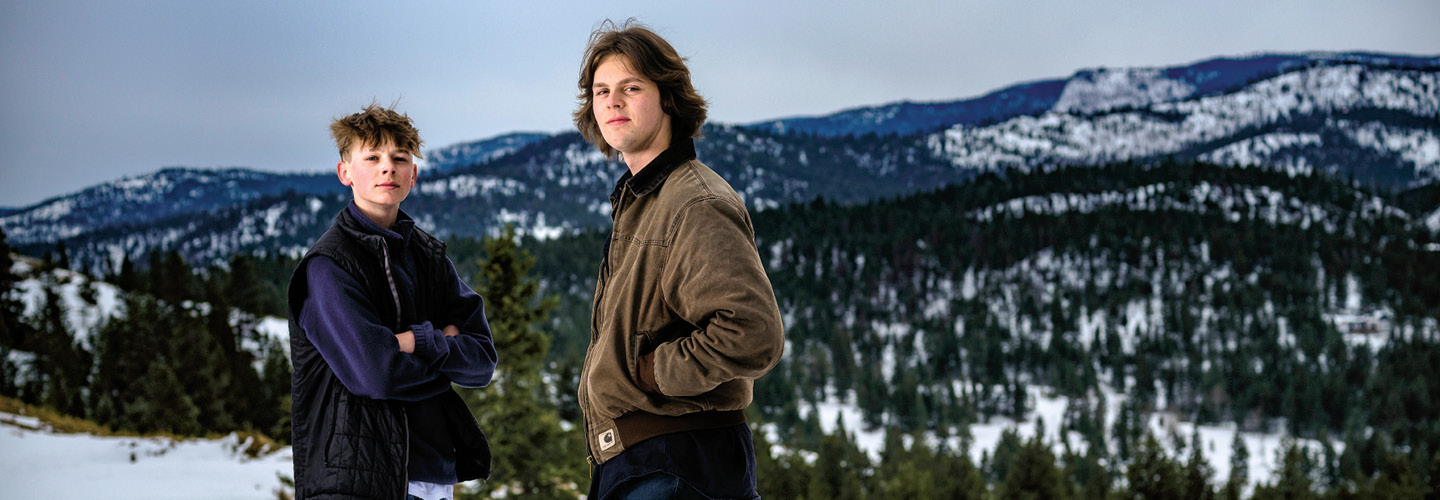One snowy Sunday in March, Badge and Lander Busse tromped into the forest behind their house, their three hunting dogs in tow. It was in these woods, just outside Glacier National Park, in Montana, that the teen boys learned to hunt, fish, dress a deer, and pick birdshot from Hungarian partridges.
It was also here that Badge and Lander, ages 15 and 18, grew attuned to the signals of a rapidly warming planet—torrential rains that eroded their hiking trails, wildfires that scarred the land, smoke so thick it forced them indoors.
Watching their cherished wilderness succumb to the effects of climate change enraged the Busse boys, and three years ago, they decided to do something about it. Along with 14 other young Montanans, they joined with an environmental legal organization and sued the state. Their case, Held v. Montana, heads to court in June.
One snowy Sunday in March, Badge and Lander Busse tromped into the forest behind their house. Their three hunting dogs followed. The woods were just outside Glacier National Park, in Montana. It’s where the teen boys learned to hunt, fish, dress a deer, and pick birdshot from Hungarian partridges.
It was also here that Badge and Lander, ages 15 and 18, grew attuned to the signals of a rapidly warming planet. Torrential rains have eroded their hiking trails. Wildfires have scarred the land with smoke so thick that it forced them indoors.
Watching the wilderness succumb to the effects of climate change enraged the Busse boys. Three years ago, they decided to do something about it. Along with 14 other young Montanans, they joined with an environmental legal organization and sued the state. Their case, Held v. Montana, heads to court in June.

